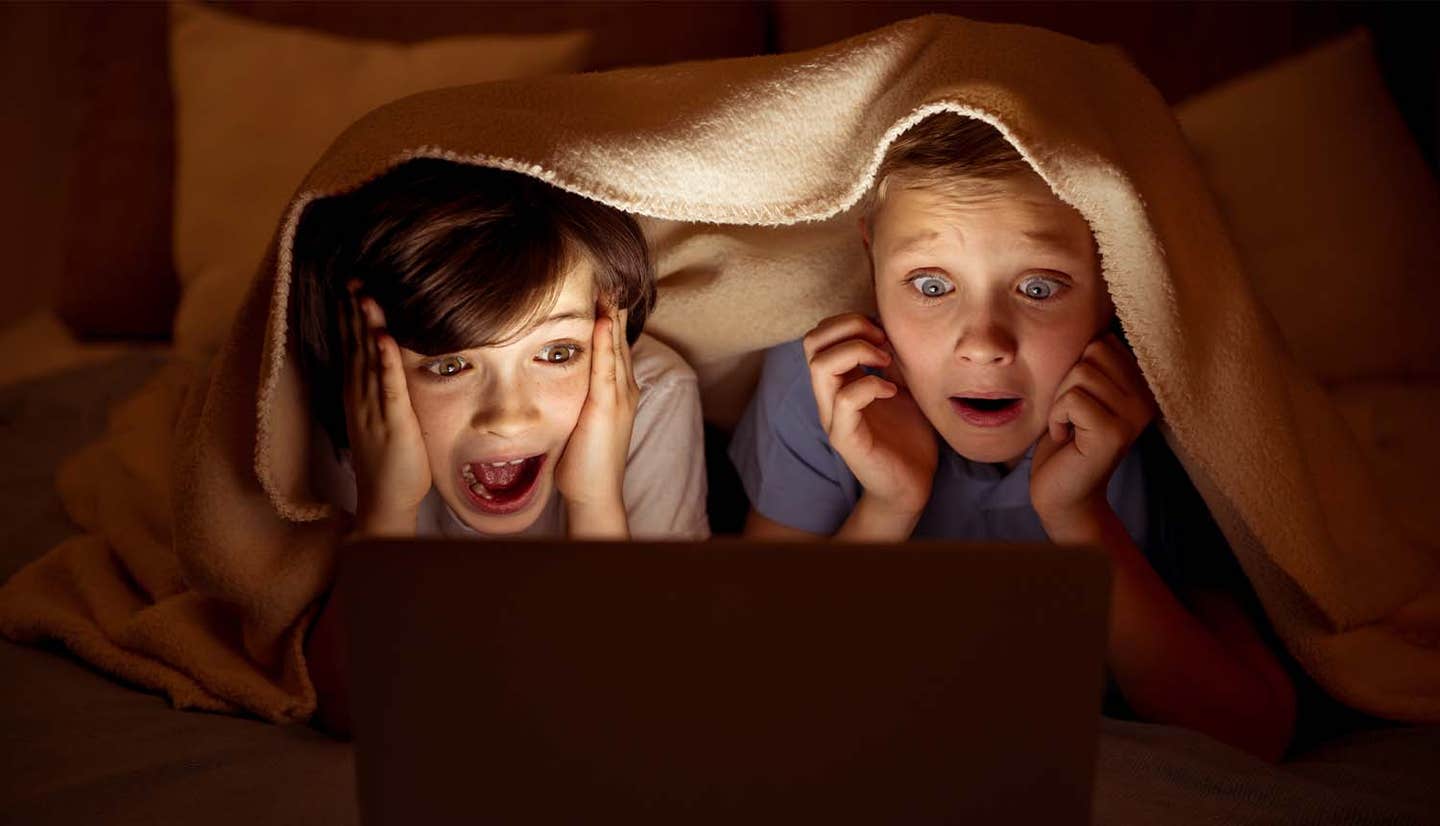New study reveals the secret to a good night’s sleep
Sleep is essential for our well-being, and a good night’s sleep can work wonders for both mind and body. What determines how much we need?

[Apr. 23, 2023: Staff Writer, The Brighter Side of News]
A good night's sleep can work wonders for both mind and body. (CREDIT: Creative Commons)
Sleep is essential for our well-being, and a good night's sleep can work wonders for both mind and body. However, what determines how much we need to sleep, and what can cause us to sleep more deeply, has remained a mystery. Now, a new study by researchers from the University of Tsukuba has provided some answers, revealing a signaling pathway within brain cells that regulates the length and depth of sleep.
In the study, the researchers examined genetic mutations in mice and how these affect their patterns of sleep. "We identified a mutation that led to the mice sleeping much longer and more deeply than usual," said senior author of the study, Professor Hiromasa Funato. The researchers found that this was caused by low levels of an enzyme called histone deacetylase 4 (HDAC4), which is known to suppress the expression of target genes.
Previous studies on HDAC4 have shown that it is greatly affected by the attachment of phosphate molecules in a process known as phosphorylation. When this occurs, HDAC4 tends to move away from the cell nucleus, and the suppression of certain proteins is reduced. The researchers were interested in whether this phosphorylation of HDAC4 would affect sleep.
"We focused on a protein called salt-inducible kinase 3, otherwise known as SIK3, which phosphorylates HDAC4," says Professor Funato. "We previously found that this protein has strong effects on sleep." The team found that when there was a lack of SIK3 or when HDAC4 was modified to prevent phosphorylation, the mice slept less.
Related Stories
In contrast, when the mice had a more active version of SIK3, which increased the phosphorylation of HDAC4, they slept a lot more. They also identified a further protein, LKB1, which phosphorylates SIK3, and has similar sleep-suppressing effects when deficient.
"Our findings indicate that there is a signaling pathway within brain cells from LKB1 to SIK3 and then to HDAC4," says study co-senior author, Professor Masashi Yanagisawa. "This pathway leads to the phosphorylation of HDAC4, which promotes sleep, most probably because it affects the expression of sleep-promoting genes."
The team carried out further experiments to identify the brain cells in which these pathways regulate sleep. This involved altering the amounts of SIK3 and HDAC4 in different cell types and brain regions. The results indicated that signaling within the cells of the cortex regulates the depth of sleep, while signaling within the hypothalamus regulates the amount of deep sleep. For both brain regions, the excitatory neurons, which can activate other neurons, were identified as playing a key role.
Single-nucleus transcriptome changes and the molecular pathway associated with sleep need. (CREDIT: Nature Communications)
"These results provide an important insight into how sleep is regulated, which could potentially lead to a greater understanding of sleep disorders as well as the development of new treatments," says Professor Funato.
Sleep is essential for our health and well-being, and a lack of sleep can have serious consequences for our physical and mental health. According to the National Sleep Foundation, adults need between seven and nine hours of sleep per night, while teenagers require between eight and ten hours, and younger children need even more. However, many people struggle to get enough sleep, with around one-third of adults in the US reporting that they don't get enough sleep on a regular basis.
Single-nucleus transcriptome changes and the molecular pathway associated with sleep need. (CREDIT: Nature Communications)
There are many factors that can affect sleep, including stress, anxiety, and lifestyle habits, such as diet and exercise. However, the new study from the University of Tsukuba sheds light on the complex biological mechanisms that underpin sleep, and how they can be manipulated to promote healthy sleep.
The team's findings have shed light on the molecular mechanisms that underlie sleep regulation, which could ultimately lead to the development of new treatments for sleep disorders. Currently, sleep disorders affect millions of people worldwide, and can have a significant impact on their quality of life.
According to the National Sleep Foundation, adults require between 7 and 9 hours of sleep per night, while infants and children require more. However, many people struggle to get enough sleep, and the reasons for this can be complex. Factors such as stress, anxiety, and lifestyle habits such as caffeine intake and screen time can all affect the quality and duration of sleep.
Sleep disorders can also be caused by underlying health conditions, such as sleep apnea, restless legs syndrome, and narcolepsy. These conditions can be difficult to diagnose and treat, and can have a profound impact on a person's physical and mental health.
The University of Tsukuba study is just one example of the research being carried out in the field of sleep science, which is seeking to uncover the secrets of the brain and the complex mechanisms that govern our sleep-wake cycles. Advances in technology and our understanding of the brain have allowed scientists to delve deeper into the molecular and genetic underpinnings of sleep, and to develop new approaches to diagnosing and treating sleep disorders.
One area of research that is particularly promising is the use of genetics to identify the genes and pathways that are involved in sleep regulation. This approach has already yielded important insights into the role of specific genes in sleep, such as the CLOCK gene, which is involved in the regulation of circadian rhythms.
Other approaches involve the use of pharmacological agents to modulate the activity of specific neurotransmitters and signaling pathways in the brain. For example, drugs that target the orexin system, which is involved in the promotion of wakefulness, have been shown to be effective in the treatment of narcolepsy.
Despite these advances, however, much remains to be learned about the complex interplay between the brain, genetics, and environmental factors that govern our sleep. The University of Tsukuba study provides an important step forward in our understanding of this complex system, and could ultimately lead to the development of new treatments for sleep disorders.
Sleep is a fundamental aspect of our health and well-being, and is essential for the proper functioning of the brain and body. The University of Tsukuba study has provided important new insights into the molecular mechanisms that regulate sleep, and could ultimately lead to the development of new treatments for sleep disorders. As our understanding of sleep continues to grow, we may be able to unlock the secrets of this complex system, and to develop new approaches to promoting healthy sleep and treating sleep disorders.
The article, "Kinase signalling in excitatory neurons regulates sleep quantity and depth," was published in Nature.
Tips for Better Sleep
Good sleep habits (sometimes referred to as “sleep hygiene”) can help you get a good night’s sleep.
Some habits that can improve your sleep health:
Be consistent. Go to bed at the same time each night and get up at the same time each morning, including on the weekends
Make sure your bedroom is quiet, dark, relaxing, and at a comfortable temperature
Remove electronic devices, such as TVs, computers, and smart phones, from the bedroom
Avoid large meals, caffeine, and alcohol before bedtime
Get some exercise. Being physically active during the day can help you fall asleep more easily at night.
For more information on sleep eduction, check out the resources here: https://www.sleepeducation.org/essentials-in-sleep/healthy-sleep-habits
This work was supported by the World Premier International Research Center Initiative from MEXT, JSPS KAKENHI, JST CREST, AMED, JSPS DC2, University of Tsukuba Basic Research Support Program Type A, Funding Program for World-Leading Innovative R&D on Science and Technology (FIRST Program).
Note: Materials provided above by The Brighter Side of News. Content may be edited for style and length.
Like these kind of feel good stories? Get the Brighter Side of News' newsletter.
Joseph Shavit
Head Science News Writer | Communicating Innovation & Discovery
Based in Los Angeles, Joseph Shavit is an accomplished science journalist, head science news writer and co-founder at The Brighter Side of News, where he translates cutting-edge discoveries into compelling stories for a broad audience. With a strong background spanning science, business, product management, media leadership, and entrepreneurship, Joseph brings a unique perspective to science communication. His expertise allows him to uncover the intersection of technological advancements and market potential, shedding light on how groundbreaking research evolves into transformative products and industries.



